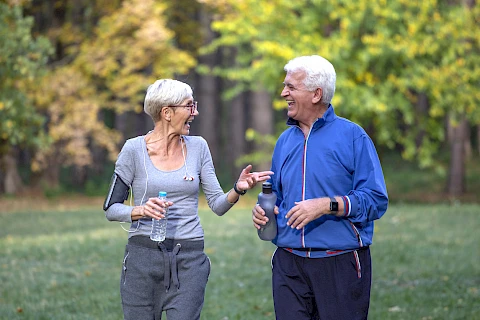
In the cycle of seasons, the arrival of spring is often heralded as a time of renewal and rejuvenation. As winter thaws away and gives rise to longer, sunnier days, many of us begin to feel a subtle shift in our mood and overall well-being. This is an especially significant time for those battling seasonal affective disorder (SAD), a form of depression that often wanes and waxes with the seasons. But how exactly does the blossoming season of spring influence this condition? In particular, how does it impact our seniors, who have their unique set of health considerations?
Seasonal Affective Disorder (SAD) in Seniors
SAD is a type of depression that follows a seasonal pattern. Its symptoms can include feelings of sadness, low energy, difficulty concentrating, and a decreased interest in activities one usually enjoys. Although it can occur at any age, seniors can be especially susceptible due to factors such as reduced mobility, social isolation, or existing health conditions. During darker months, seniors may experience symptoms such as persistent sadness, lack of energy, changes in appetite, and sleep disturbances. SAD can exacerbate existing conditions like depression or anxiety, making it crucial for seniors and their caregivers to recognize and address symptoms promptly.
Spring's Arrival and SAD
When spring arrives, the frequency and intensity of SAD symptoms can shift dramatically. As the days grow longer, the increased exposure to sunlight can help to significantly boost mood and energy levels. Sunlight triggers our bodies to produce more serotonin, a chemical in the brain that influences mood. Therefore, the increase in daylight hours that comes with spring can effectively alleviate the symptoms of SAD, helping seniors feel more energized and positive.
The Benefits of Outdoor Activity in Spring
Spring also brings an array of opportunities for seniors to get outdoors and stay active. Engaging in regular physical activity is a proven antidote to depression and can help to boost mental well-being. Whether it's a simple walk around the neighborhood, gardening, or bird-watching, the fresh air, physical exertion, and connection with nature can do wonders for the spirit. It also helps seniors stay physically healthy, which in turn benefits their mental health.
The Role of In-Home Caregivers
In-home caregivers can be exceptionally helpful in supporting seniors during this seasonal transition. By creating a daily routine that includes enjoyable outdoor activities and adequate exposure to sunlight, they can mitigate the impact of SAD. Caregivers can also be vigilant about the seniors' mood changes, providing requisite support and companionship when needed.
Senior Helpers Mesa Can Help With SAD
Senior Helpers Mesa provides a comprehensive suite of services for seniors, from general companionship to specialized care for conditions like SAD. Our dedicated team understands the unique challenges seniors face with the change of seasons. Whether it's ensuring your loved ones get enough socialization, encouraging them to engage in outdoor activities, or just being there for them in their low moments, we are committed to enhancing their overall well-being.
If you or your loved ones live in Mesa, Apache Junction, Scottsdale, Fountain Hills, or Cave Creek and need support with day-to-day care, contact us today.